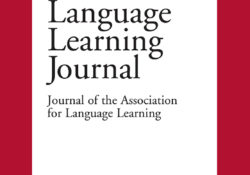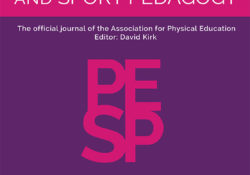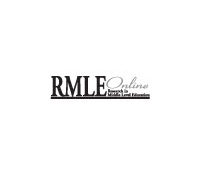eric.ed.gov har udgivet: This study provides a comprehensive look at a constructivist one-to-one computing program’s effects on teaching and learning practices as well as student learning achievements. The study participants were 476 fourth and fifth grade students and their teachers from four elementary schools from a school district in the Dallas, Texas, area. Findings indicated consistent and highly positive findings of the efficacy of a constructivist one-to-one computing program in terms of student math and reading achievement, differentiation in teaching and learning, higher student attendance, and decreased disciplinary actions, suggesting a range of possible educational benefits that can be achieved through a comprehensive one-to-one computing educational environment. (Contains 3 tables.) Link til kilde
Like this:
Like Loading...
eric.ed.gov har udgivet: Recently, the Department of Teacher Education and the Liberal Studies Program in the School of Education at California State University, Dominguez Hills (CSUDH) collaborated in developing a Blended Liberal Studies/Teacher Education Program (BLTEP) for upper division transfer students interested in completing an elementary credential. The BLTEP curriculum blends the regular Liberal Studies Program with the elementary credential program. Students take both subject matter and pedagogy courses concurrently, as well as a set of blended content and pedagogy courses in science, social science, and mathematics. This article details the curriculum development process of the blended mathematics course, “LBS 360 Math Content and Methods.” The content in this course combines the study of real numbers and problem solving with pedagogy for teaching math content to elementary-aged students. The blending… Continue Reading →
Like this:
Like Loading...
eric.ed.gov har udgivet: Critical thinking, along with other skills, is included as a basic skill in the constructive education program that has been in use in Turkey since 2005. Therefore, a large increase has been observed in studies on critical thinking skills since 2005. In this frame, the present study was conducted in order to systematically examine research papers on critical thinking skills in terms of several variables published between the years 2005 and 2014 in national journals which are indexed by SSCI and the ULAKBIM social sciences database. In this context, a total of 93 articles from 29 different journals were analyzed using the NVivo 10, SPSS 18, and Microsoft Excel programs and performing content analysis which is widely used in qualitative studies. According to the findings, a large… Continue Reading →
Like this:
Like Loading...
eric.ed.gov har udgivet: A key element in science education is establishing and maintaining linkages between teachers and researchers that can eventuate in enhanced student outcomes. Determining when and where a new educational program or intervention results in an enhanced outcome can be sensitive to many different forces that the researcher must carefully manage. The target of inquiry-based approach is to increase cognitive abilities such as critical thinking. However, students, teachers, and schools are evaluated based on content student knowledge. Statistical modeling choices affect the ability to determine the efficacy of the intervention and the ability to identify those students who receive the greatest and least benefit from the intervention. As it is imperative to determine how an increase in cognitive abilities corresponds to an increase in content across different demographics… Continue Reading →
Like this:
Like Loading...
tandfonline.com har udgivet en rapport under søgningen “Teacher Education Mathematics”: ABSTRACT ABSTRACT Teaching through a second language (L2) poses many challenges, as second language learners (SLLs) have fewer linguistic resources in the language of instruction. Scaffolding students’ learning is a possible way of overcoming these challenges, but there are few studies on this in Content and Language Integrated Learning (CLIL) contexts. The present study suggests a framework for how to empirically identify and classify scaffolding. Using the framework, the study investigates how three Norwegian CLIL teachers support learning for second language learners (SLL) through scaffolding. Twelve lessons (science, geography and social science) were filmed in one 11th-grade CLIL class. A coding manual (PLATO) was used to identify the scaffolding strategies the teachers used. The findings indicate that CLIL teachers scaffold… Continue Reading →
Like this:
Like Loading...
tandfonline.com har udgivet en rapport under søgningen “Teacher Education Mathematics”: ABSTRACT ABSTRACT As teachers’ informal professional development is visible in social media, this study probes teachers’ participation in self-organized Facebook groups in mathematics or Swedish-language education. In total, 553 posts from six Facebook groups were categorized using Shulman’s knowledge-base framework, and analysed using systemic functional grammar. Teachers use “questions” and “offers” most frequently (88%). Within these speech functions, pedagogical content knowledge dominates (63%), indicating that these groups constitute professional learning communities that teachers use as a professional development resource, focusing the interaction on pedagogical content knowledge. This study finds a largely similar practice in Facebook groups across the two subjects. Link til kilde
Like this:
Like Loading...
tandfonline.com har udgivet en rapport under søgningen “Teacher Education Mathematics”: ABSTRACT ABSTRACT Background: In this conceptual paper, we contribute to the discussion of pedagogical content knowledge (PCK) in physical education and physical education teacher education (PETE). There are two main limitations in the work inspired by Shulman’s [1987. “Knowledge and Teaching: Foundations of the New Reform.” Harvard Educational Review 57 (1): 1–21] concepts content knowledge (CK) and PCK. First, CK is exclusively interpreted as knowledge in and about movement, and excludes knowledge through movement. Second, contemporary understandings of CK and PCK have been mainly from a behaviour analytic perspective. By only adopting a behavioural perspective of CK, i.e. a perspective which aims to change students’ behaviours without necessarily changing knowledge or understanding, pre-service teachers are unlikely to reflect on context… Continue Reading →
Like this:
Like Loading...
tandfonline.com har udgivet en rapport under søgningen “Teacher Education Mathematics”: Link til kilde
Like this:
Like Loading...
tandfonline.com har udgivet en rapport under søgningen “Teacher Education Mathematics”: Abstract Abstract Building on previous studies of ESL and content teachers’ collaboration, this qualitative case study relied on Davies and Harré’s positioning theory as a theoretical lens to examine the influences that collaboration between an ESL teacher and a language arts teacher had on the language arts teacher’s approach to planning for and teaching ESL students. Data collection included three audio recorded semi-structured interviews, two video recorded collaborative planning sessions, two reflective journals written by the language arts teacher, document analysis of the created lesson plan documents, and field notes. The findings showed that the language arts teacher changed her perceptions about the content teacher’s role, lesson plan design, and her views about ESL students while working in collaboration with… Continue Reading →
Like this:
Like Loading...
eric.ed.gov har udgivet: Classroom observation and teacher supervision is an important part of the life of schools. From the teacher’s point of view it can be an opportunity for one’s principal to get to know one’s work and provide opportunities for continued learning; or it can be an ordeal. From the principal’s point of view it can be an opportunity to understand what is going on in mathematics classrooms in his school and to offer help to teachers; or it can be a perfunctory process of filling out a checklist. This article reports the results of a study conducted to determine the role principals’ leadership content knowledge (LCK) plays in their observations of mathematics classrooms and conferences with teachers. The researchers were particularly interested in how different LCK “profiles”–particular combinations… Continue Reading →
Like this:
Like Loading...




